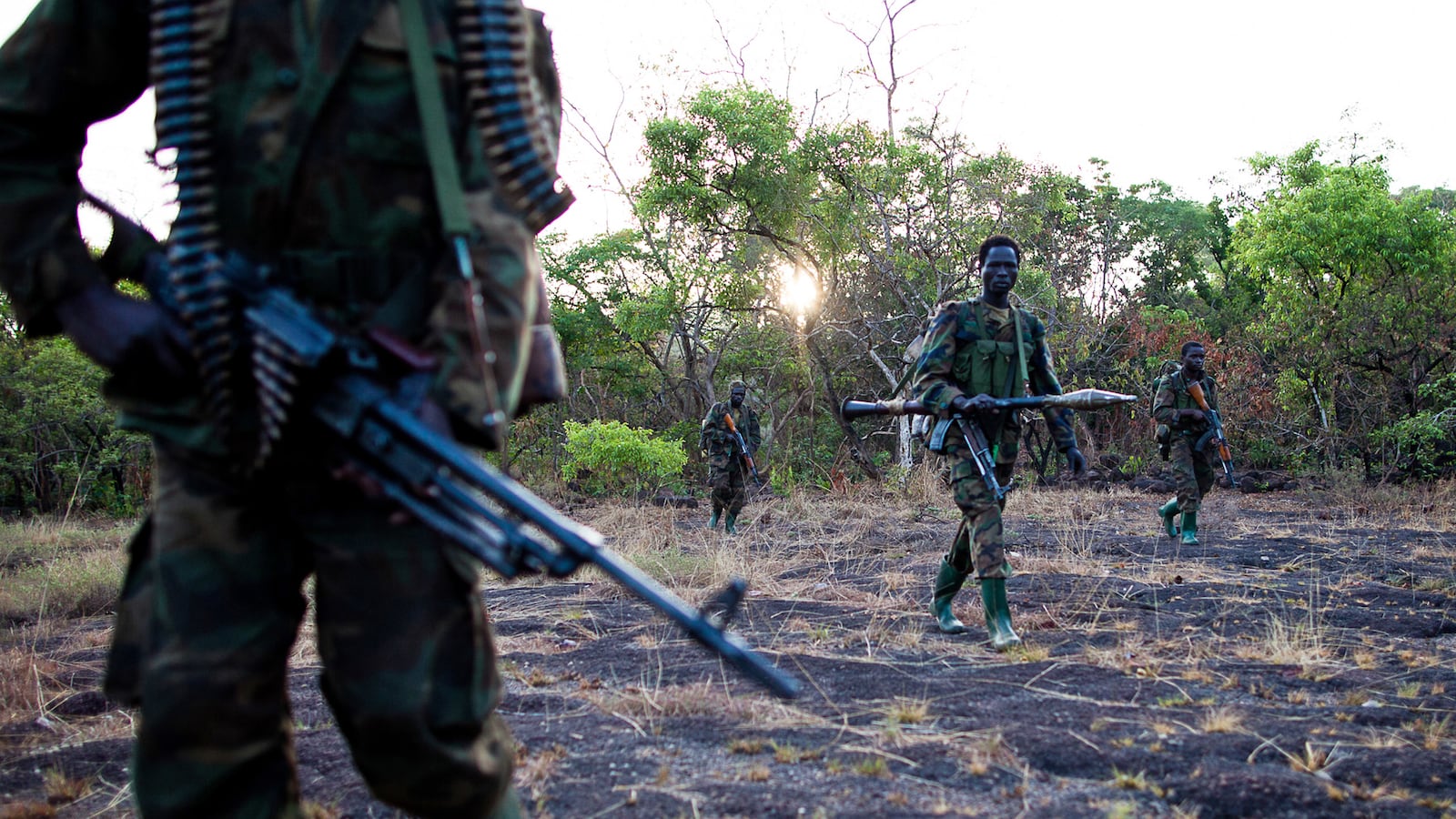Infamous African warlord Joseph Kony might soon be taking a break from life as a fugitive. Following a recent coup in the Central African Republic, the African Union has ordered a halt to the hunt for Kony and his rebel group, the Lord’s Resistance Army (LRA), which launched an insurgency 25 years ago. Since 2008, African troops, led by the Ugandan military and later supported by 100 U.S. Special Forces soldiers in 2011, have combed the dense jungles between Congo, North and South Sudan, and the Central African Republic trying to find the elusive warlord. Kony, a self-styled mystic leader, was indicted by the International Criminal Court for crimes against humanity. His rebels are notorious for mutilating innocent people and abducting children to become sex slaves. Now, without the counter-LRA force, civilians and NGOs are extremely concerned about the consequences of Kony’s forces being free to roam this remote region.

Following the presence in the region of the combined U.S. and African forces, U.S. military officials had reported a decrease in abuses being committed by the LRA and activities. “While we were still a long way off, the LRA definitely felt our presence, and were significantly restricted,” a source in the forces told The Daily Beast. With the Ugandan military pulling out of the region, local NGOs have expressed fear over what this will mean for their security. In handwritten notes sent to Invisible Children, an advocacy group behind the successful “Kony 2012” campaign, their desperation was evident. “It is thanks to these two forces that the population is less affected and if they leave we will all be killed by the LRA,” said one note sent from the Internal Displaced People Committee.
If the locals are so desperate, then it raises the question: Why are the U.S. and Ugandan troops halting operations? It seems they are no longer welcome due to the coup in the Central African Republic. Following months of fighting, ceasefires, peace talks, then more fighting, a rebel coalition called Seleka swept across the whole of the Central African Republic, and three days later entered the nation’s capital, Bangui. President François Bozize fled to neighboring Cameroon, and rebel leader Michel Djotodia declared himself head of state, suspended the constitution, and began to rule by decree. African Union sources have said that the Ugandan troops have faced hostilities from the new rebel group. This is not so surprising, as the agreement for the counter-LRA operation was made with the rebels’ enemy, President Bozize. The rebel takeover has changed the political context of the counter-LRA operation, explains Thierry Vircoulon, a Central Africa expert at the International Crisis Group, adding that to resume the operation a green light will be needed from the new rebel government. “This is impossible because the de facto Seleka authority is illegitimate and under AU sanctions.”
Even before the rebels took over, the Central African Republic had long been considered a failed state, with many of the areas where LRA operates too far from the capital for the government to react, even if they wanted to. While the Ugandan troops may have prevented the LRA from terrorizing certain areas, their absence, it is feared, will give the LRA freedom to reign as they please. In a letter written by Radio Zereda, a community radio station in the Haut-Mbomou district in the eastern part of the Central African Republic, they prayed for the Ugandan military to stay. “After the forces leave, LRA will enter immediately in our city. Because Haut-Mbomou is an autonomous district, Bangui does not react to our calls of distress,” read the letter.

The U.S. State Department announced on the same day of Uganda’s withdrawal that it was offering a $5 million reward for information leading to the arrest of Kony. This was quickly dismissed by activists working on Kony campaigns. “If nobody is searching, there will be no arrest and no one to reward,” read an Invisible Children blog post. While the counter-LRA forces have been criticized for not making much headway, it is believed that over the last three years LRA killings and abductions have decreased, and it appears the civilians in the affected regions have become dependent on their presence for their security.
Any progress made, however little, could soon unravel as the LRA are given free rein, once again, to do as they please. The danger could then be a return to the time when LRA abuses were at their height, if Kony is given space to find allies and re-arm. This, human rights groups warn, could lead to increased LRA retributions, child recruitment, and sexual abuse. Says Virocoloun: “If these forces leave the eastern CAR [Central African Republic], this could lead to a new surge of LRA activities and the emergence of local self-defense groups that would quickly become out of control in this part of the country.”





